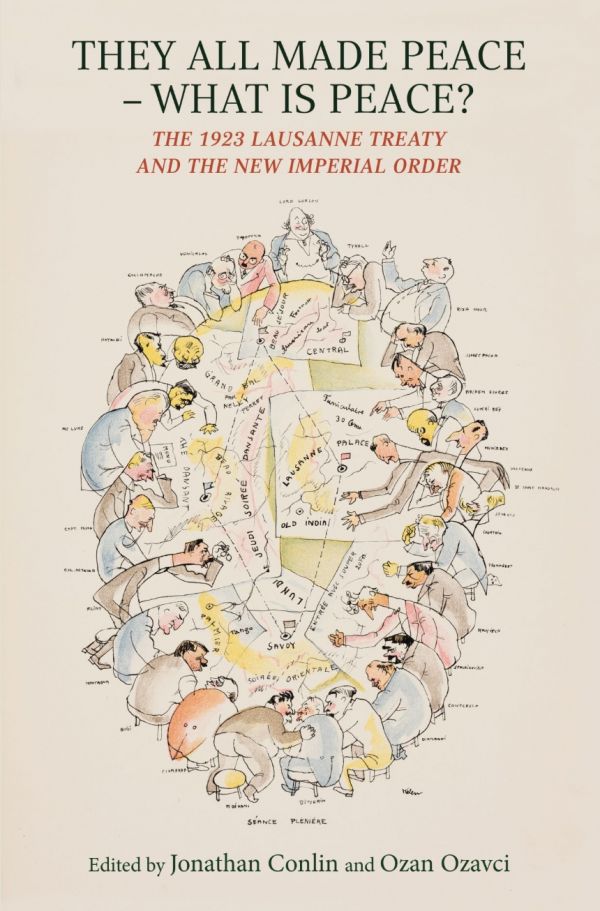Buy or gift a stand-alone digital subscription and get unlimited access to dozens of back issues for just £18.99 / $18.99 a year.
Please register at www.exacteditions.com/digital/cornucopia with your subscriber account number or contact subscriptions@cornucopia.net
Buy a digital subscription Go to the Digital Edition
The 1923 Lausanne Treaty and the New Imperial Order
The 1923 Treaty of Lausanne may have been the last of the post-World War One peace settlements, but it was very different from Versailles. Like its German and Austro-Hungarian allies, the defeated Ottoman Empire had initially been presented with a dictated peace in 1920. In just two years, however, the Kemalist insurgency turned defeat into victory, enabling Turkey to claim its place as the first sovereign state in the Middle East. Meanwhile those communities who had lived side-by-side with Turks inside the Ottoman Empire struggled to assert their own sovereignty, jostled between the Soviet Union and the resurgence of empire in the guise of League of Nations mandates. For 1.5m Ottoman Greeks and Balkan Muslims, ‘making peace’ involved forced population exchanges, a peace-making tool now understood as ethnic cleansing.
Chapters consider competing visions for a post- Ottoman world, situate the population exchanges relative to other peace-making efforts, and discuss economic factors behind the reallocation of Ottoman debt as well as refugee flows and oil politics. Further chapters consider Arab, Armenian, American and Iranian perspectives, as well as the long shadow cast by Lausanne over contemporary politics, both inside Turkey and out.
‘An important book offering new perspectives on the Lausanne Treaty of 1923. Gone is the positive interpretation of Lausanne as the most ‘successful’ of the treaties ending hostilities in the Great War; in its place is a multi- layered account of exploitation, exclusion, and betrayal of the promise of recovery and development in a region ravaged by war, famine, and genocide. These essays offer a new and important interpretation not only of Middle Eastern history but of international history in the 1920s.’
Jay Winter, Professor of History Emeritus, Yale University
‘Of all the international treaties signed after World War I, only Lausanne remains intact: the founding document of the Turkish Republic. Yet the Lausanne peace process has not attracted the interest it deserves. In the absence of well-grounded research, journalists and Islamist demagogues alike have come up with their own myths, myths that continue to circulate today. Here at last, a century on, we have the definitive work: of interest not only to diplomats, political scientists and historians, but the educated public in general.’
Ayhan Aktar, former Professor of Sociology, Istanbul Bilgi University
1. STANDARD
Standard, untracked shipping is available worldwide. However, for high-value or heavy shipments outside the UK and Turkey, we strongly recommend option 2 or 3.
2. TRACKED SHIPPING
You can choose this option when ordering online.
3. EXPRESS SHIPPING
Contact subscriptions@cornucopia.net for a quote.
You can also order directly through subscriptions@cornucopia.net if you are worried about shipping times. We can issue a secure online invoice payable by debit or credit card for your order.

Cornucopia works in partnership with the digital publishing platform Exact Editions to offer individual and institutional subscribers unlimited access to a searchable archive of fascinating back issues and every newly published issue. The digital edition of Cornucopia is available cross-platform on web, iOS and Android and offers a comprehensive search function, allowing the title’s cultural content to be delved into at the touch of a button.
Digital Subscription: £18.99 / $18.99 (1 year)
Subscribe now